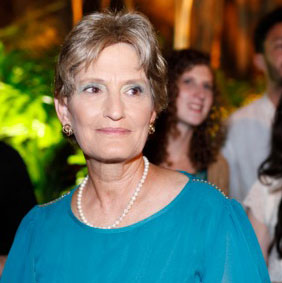Chava hunkers down in her safe room as the missiles rain overhead. Itzik’s tireless efforts to keep his restaurant running normally are to no avail; his restaurant’s business is down 90 percent. As they consider their future, they are reminded of nine years ago when everything they had built in Gush Katif, the beautiful Jewish communities in Gaza, was razed.
The Disengagement: No Homes, Communities, Livelihood
On the 10th of the Hebrew month of Av, 2005, the day of the expulsion from Gush Katif, the Jewish communities in Gaza, Gush Katif rabbis asked Rabbi Yosef Zvi Rimon of Alon Shvut South (in Gush Etzion in Judea) for help.
Consider this: In Gush Katif the unemployment rate was three percent. The day after the disengagement it leaped to 85percent.
“I felt that the most pressing problem was employment.” Rabbi Rimon recalls. “People who were accustomed to hard work found themselves suddenly unemployed.”
That led to the launching of JobKatif.
After nine years of individual counseling, professional retraining courses, new business initiatives, employment placement and academic scholarships, 2,500 Gush Katif evacuees found employment. After the disengagement, Itzik recalls, “we were in a very bad place. I couldn’t hold down a job; we couldn’t afford to put food on our table.”
He started a home catering business, barely eking out a livelihood. But thanks to a course on food management and catering, funded by JobKatif, Itzik gained some valuable professional skills. Then JobKatif stepped in with funding and hands-on advice when Itzik wanted to acquire a restaurant.
Maimonides writes about eight levels of charity. The greatest level, above which there is no greater, is to support a fellow Jew by endowing him with a gift or loan, or entering into a partnership with him, or finding employment for him, in order to strengthen his hand until he no longer be dependent up on others.
Itzik realizes that while his business is basically non-existent during this Protective Edge Operation, he also knows there is a future that awaits. Chava also has a future awaiting her. After sitting at home unemployed for more than two years, she reluctantly decided to enrol in JobKatif’s new three-month pro-active coaching course. As a result, she found a bookkeeping position at a nearby kibbutz.
Dilemmas in the South: Missiles from Gaza vs. Unemployment
Currently, however, everything is on hold. “I realize that this situation is temporary,” Chava says, “and frankly, I am more nervous about not being able to do well at my job, than I am of the missiles.”
Ironic, isn’t it?
While Itzik and Chava do have a better future within their reach, there are hundreds of Gush Katif evacuees who are still unemployed; 92% of our families are living in the South, and they must return to the work force too.
This Sabbath, known as Shabbat Hazon, named for the prophecy of Isaiah and which falls during the nine days of mourning for the Holy Temple, is dedicated to the unemployed Gush Katif families. As we were there for the Gush Katif families the day after the disengagement from Gaza, so we will be there for them the day after Protective Edge Operation.


